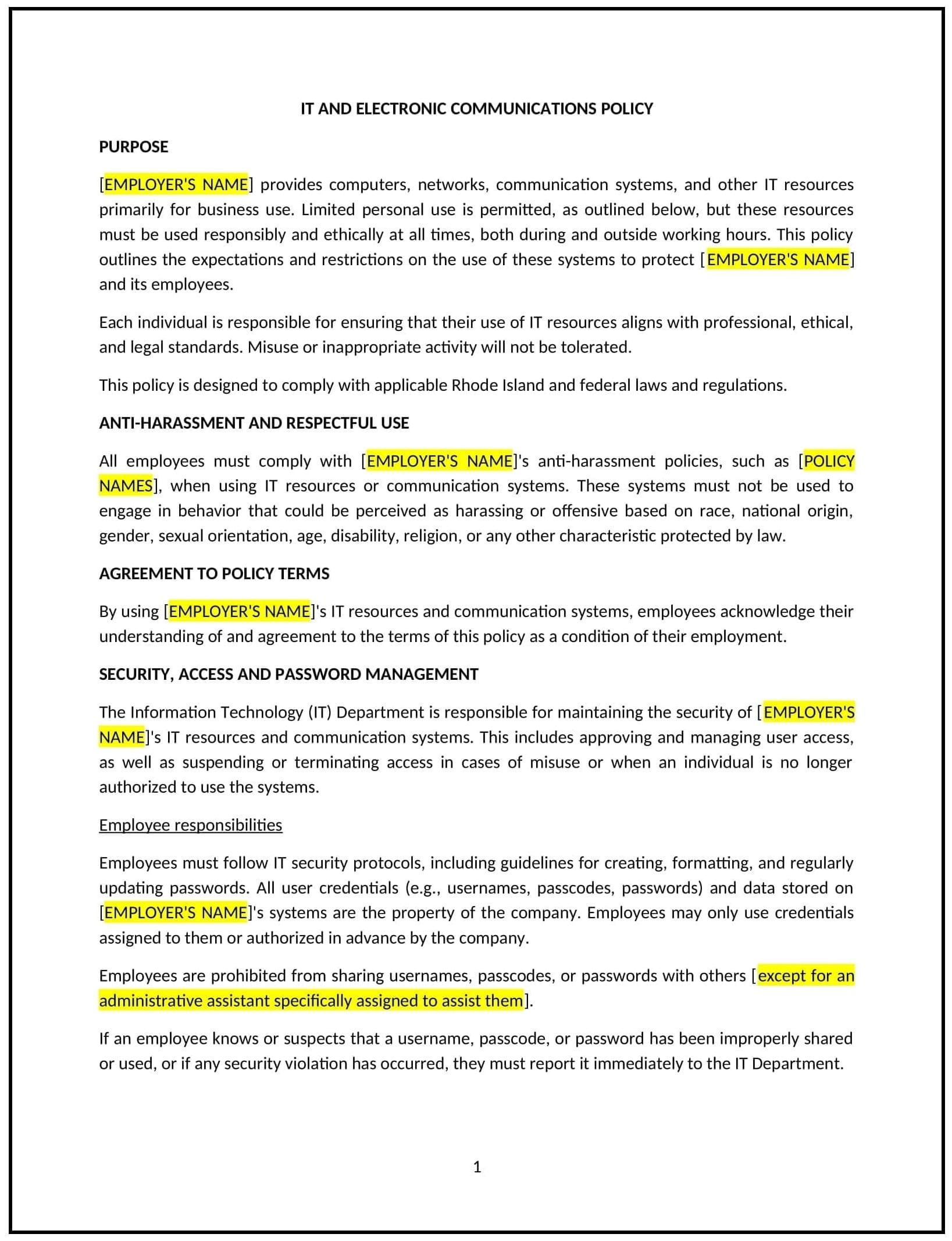IT and electronics communications policy (Rhode Island): Free template
Got contracts to review? While you're here for policies, let Cobrief make contract review effortless—start your free review now.

Customize this template for free
IT and electronics communications policy (Rhode Island)
This IT and electronics communications policy is designed to help Rhode Island businesses establish guidelines for the use of company-provided technology and communication tools. It outlines acceptable use, data security, and employee responsibilities.
By adopting this policy, businesses can protect sensitive information, ensure efficient use of technology, and minimize risks associated with misuse.
How to use this IT and electronics communications policy (Rhode Island)
- Define scope: Clarify which devices, software, and communication tools are covered by the policy.
- Establish acceptable use: Outline guidelines for using company technology, including personal use restrictions.
- Address data security: Provide protocols for protecting sensitive information, such as password requirements and encryption.
- Set employee responsibilities: Explain employee obligations, such as reporting security breaches or misuse.
- Monitor compliance: Implement measures to monitor technology use and enforce policy adherence.
- Train employees: Educate staff on proper use of technology and the importance of data security.
- Review and update: Assess the policy annually to ensure it aligns with evolving technology and business needs.
Benefits of using this IT and electronics communications policy (Rhode Island)
This policy offers several advantages for Rhode Island businesses:
- Protects sensitive information: Reduces the risk of data breaches and unauthorized access to company systems.
- Ensures efficient use: Promotes responsible use of technology, minimizing downtime and productivity losses.
- Minimizes risks: Addresses potential legal and financial risks associated with technology misuse.
- Supports compliance: Aligns with Rhode Island laws and best practices for data security and privacy.
- Enhances accountability: Clearly defines employee responsibilities, fostering a culture of accountability.
Tips for using this IT and electronics communications policy (Rhode Island)
- Communicate the policy: Share the policy with employees and include it in the employee handbook.
- Provide training: Educate employees on proper technology use and data security protocols.
- Monitor compliance: Regularly review technology use to ensure adherence to the policy.
- Address issues promptly: Take corrective action if policy violations or security breaches occur.
- Update regularly: Assess the policy annually to ensure it aligns with evolving technology and business needs.